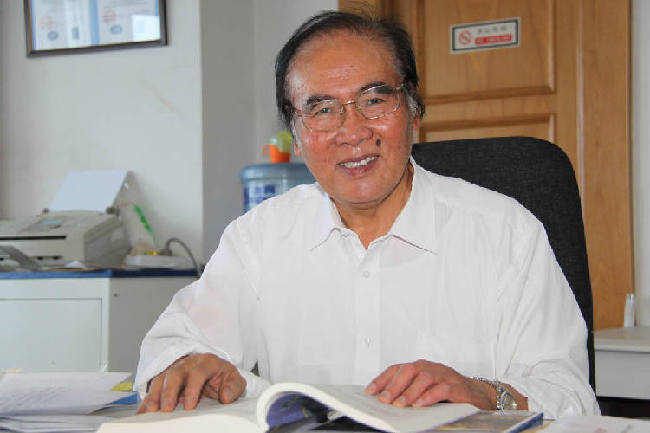Professor Ying’s Nobel Complex
By WANG FENG & HUANG XIN
 |
| Professor Ying Huaiqiao is honorary chaiman and director of the Scientific and Technological Committee of the China Orient Institute of Noise and Vibration, and vice president of the Beijing Academy of Applied Sciences. |
Editor’s Note:
“The Chinese Dream” is different for each person. Prof. Ying Huaiqiao hopes that his work with virtual instruments will culminate in a Nobel Prize. When novelist Mo Yan was awarded the Nobel Prize for Literature last year, Nobel fever swept China. The Nobel Prize is on the mind of every scientist, spurring them to put lifetime efforts into achieving it. Prof. Ying has already brought cutting-edge advancements to the field of virtual instruments, and considers contributing to the prosperity of the country a personal responsibility.
Professor Ying Huaiqiao is honorary chaiman and director of the Scientific and Technological Committee of the China Orient Institute of Noise and Vibration, and vice president of the Beijing Academy of Applied Sciences. His research focuses on the development of vibration and noise control, signal and information processing, measurement and control technology, fault diagnostics, modal analysis, data acquisition and signal analysis instruments (virtual instruments).
YING was born in Shaoxing, Zhejiang Province, which has a long tradition of devotion to academics, specifically those studying humanities. He attended a primary school whose principal was Cai Yuanpei (1868-1940), a renowned revolutionary educator and late president of Peking University. Ying has always cherished the dream of contributing to the rejuvenation of the country with his learning.
In 1959 Ying was admitted to Zhejiang University to study theoretical physics in the department of engineering physics. Soon after, however, his department merged with the applied mechanics department in the School of Mathematics and Mechanics. This development had major impact on Ying’s life. After graduation in 1964, he worked at the China Academy of Railway Sciences to research wind tunnels for high speed rails. Meanwhile he interned at the department of engineering mechanics at Tsinghua University to study wind tunnel testing and analyzing technologies. In 1965, Ying participated in nuclear and hydrogen bomb testing at the Lop Nor nuclear test site in western China. From that experience, he learned about vibration, noise and spectrum analysis in relation to nuclear weapons. Afterwards, he continued studying in this field, but with digital computers.
Work for the Scientific Development of China
Ying changed majors five times, which helped lay a solid academic foundation and enabled him to research multi-disciplinary programs. He blazed a trail for many in his field of scientific research. In his opinion, his dedication to science is obligatory.
Throughout its lengthy history, China has made many indispensable contributions to global technological development. The nation’s four greatest inventions are considered gunpowder, paper making, the compass and printing. However during the last century, China lagged behind much of the world in science and technology. Ying knows well the importance of scientific research and development for a country. When Deng Xiaoping proclaimed in 1988 that science and technology constitute a primary productive force, Ying felt a strong social responsibility and sense of mission in his research.

